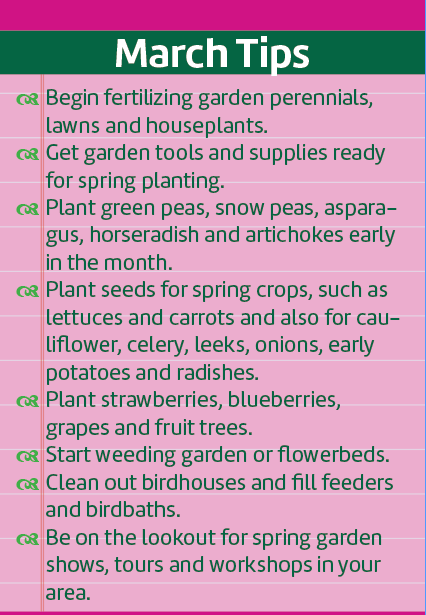On March 6, 1847, a group of women and men living near Union Springs, Ala., held a meeting that forever changed Alabama’s gardening history — and the gardening history of the whole nation.
It was on that day that the Chunnenuggee Ridge Horticultural Society, the first such society in Alabama and one of the first of its kind in the United States, was formed. The organization’s primary goal was to preserve and protect the beauty of their community’s landscape and, as their early minutes stated: “…we claim not for (the Society) the cultivation of flowers only, we aim at usefulness and utility.”
“Usefulness and utility” remain the tenets of its modern-day successor, the Chunnenuggee Public Garden Club, and also of the many gardening clubs and societies that have been created in the 170-plus years since.
Tricia Mitchell is the current president of The Garden Club of Alabama, Inc., the umbrella organization for Alabama’s more than 100 active garden clubs. She says members of these groups are committed to beautifying and protecting natural and cultural resources in their communities while also educating and honoring their fellow citizens. In the process, those members reap amazing benefits themselves.
 Garden clubs, Mitchell says, educate their members about a wide range of horticultural subjects, from gardening best practices to landscape and flower designing. But their educations don’t stop there. Club members also learn about, and teach the public about, vital environmental issues, such as protecting pollinators and watersheds.
Garden clubs, Mitchell says, educate their members about a wide range of horticultural subjects, from gardening best practices to landscape and flower designing. But their educations don’t stop there. Club members also learn about, and teach the public about, vital environmental issues, such as protecting pollinators and watersheds.
Mitchell knows firsthand how educational garden club membership can be. “I grew up in an era where people farmed and canned and I loved gardening,” she says.
When she joined her local Decatur Garden Club, she embraced the chance to learn more about the breadth of gardening. But in the process, she discovered that there was so much more to love about being in a garden club. “It’s as much about fun, fellowship, friendship, unity and support as it is about plants,” she says.
Members include men, children
While garden clubs are usually thought of as women’s clubs, their memberships (in Alabama there are more than 2,000 people who belong to a garden club) include many men as well as children. In fact, children, who can join junior garden club organizations and be involved in an array of garden club-sponsored activities, are a priority for the GCA and its member clubs.
“Teaching our young people is so crucial,” Mitchell says. “We want to invest in them so they can be the next generation of gardeners.”
Garden clubs also invest in future professionals. The GCA sponsors six endowed scholarships at Auburn University for students majoring in horticulture, forestry and landscape design, and a number of local clubs also fund their own college scholarships.
Supporting military veterans and their families is also a primary focus of garden clubs, a focus that began in the 1940s and continues today as the clubs support Blue Star and Gold Star programs and memorials. (In 1951, Alabama garden club members held an “Every Light a Prayer for Peace” ceremony to pay tribute to those serving in the military as the Korean Conflict was raging. That service is now held annually and is practiced throughout the country.)
In addition, the GCA has been active in establishing garden spaces, such as the Garden of Memory on the Auburn University campus that honors veterans of both World Wars and the Korean Conflict and the Helen Keller Fragrance Garden at the Alabama School for the Deaf and Blind.
Today, garden clubs continue to help with a wide range of community projects ranging from beautification and memorial projects to supporting state parks and preserving land, heritage sites and endangered species. They also take care of others. One Alabama club sponsors a program to teach female prison inmates how to grow and preserve food, and several clubs run community gardens to help feed the hungry.
But perhaps the best benefit of being in a garden club is the chance to develop lasting relationships. “Garden club members will probably be some of your best friends forever,” Mitchell says. “I guess that’s because we have a lot of things in common.”
To become involved in this 170-year-old tradition, visit the GCA website at http://gardenclubofalabama.org. There you can find contact information for garden clubs in your area or learn how to start one of your own. You can also sign up to attend the GCA’s state convention April 8-10 in Tuscaloosa.
Katie Jackson is a freelance writer and editor based in Opelika, Alabama. Contact her at [email protected].




